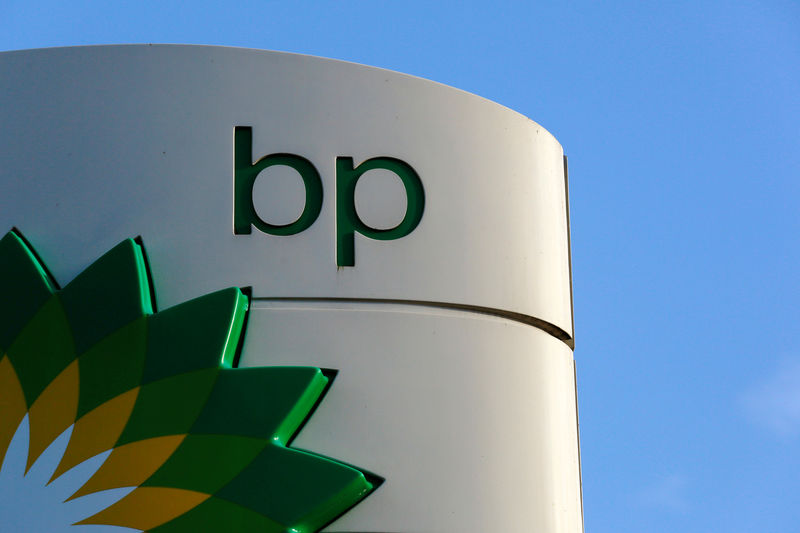By Luc Cohen and Marianna Parraga
CARACAS/MEXICO CITY (Reuters) - Venezuela's oil ministry last month turned down a proposal by BP (L:BP) to buy Total's (PA:TOTF) stake in a promising but inactive natural gas project along the maritime border with Trinidad and Tobago, five people briefed on the matter said.
BP owns the rights to the Trinidadian side of the gas play. It could have used the output from the neighboring area, the Deltana Platform's fourth block off Venezuela's eastern coast, to feed its growing operations on the island, said the people, who were not authorized to speak publicly.
The rejection highlights how Venezuela's socialist government, often hostile to foreign companies, remains an obstacle to investment even as oil majors eye the OPEC nation's barely tapped gas reserves to expand their liquefied natural gas (LNG) portfolios.
The ministry told the parties the area's reserves needed to be re-estimated, an argument it has used to reject other deals.
Two of the people said the deal had been waiting for approval for two years. France's Total said in a March filing that the sale of its 49 percent stake was "awaiting approval from the authorities."
Norway's Equinor (OL:EQNR) owns the other 51 percent. An Equinor spokesman said it finished exploration drilling 10 years ago, but declined to comment on Total's plans.
Gas investment could help Venezuela, which has the world's largest crude reserves, compensate for lack of capital for its oil industry, whose production continues plummeting amid a political and economic crisis. Venezuela's mostly undeveloped gas reserves were 225 trillion cubic feet (TCF) at the end of 2017, compared with Trinidad's 9.2 TCF, according to BP's Statistical Review of World Energy.
BP and Royal Dutch Shell (AS:RDSa) own stakes in all four of Trinidad's LNG plants, known as trains. Shell, the world's largest liquefied gas trader after buying BG Group for $52 billion, is pushing Venezuela to let it produce gas in the offshore Dragon field, close to its Hibiscus platform off Trinidad.
"There's a real shortage of gas supply in the downstream industries in Trinidad," said Tanvir Malik, a research analyst at the Economist Intelligence Unit.
Total's attempt to sell comes as some Western oil firms seek to shrink their Venezuelan operations as reputational risk grows amid U.S. sanctions and corruption probes linked to government officials and state-run oil company PDVSA.
Shell requested approval this year to sell its only crude asset in Venezuela to French firm Maurel & Prom. Total recently downgraded its Venezuelan projects to the lowest investment category, implying it could continue looking for buyers, two company sources said.
BP declined to comment. Venezuela's oil ministry and Total did not respond to requests for comment.
NOT ALONE
Venezuelan law requires PDVSA to take a majority stake in crude oil joint ventures, but is more flexible with gas, allowing foreign firms to individually operate projects through exploration and production licenses.
But ownership changes in gas projects are still subject to regulatory approval, and the government is required to provide an explanation for rejections, said Eugenio Hernández-Bretón, a partner at the Baker McKenzie law firm in Caracas.
Under late socialist President Hugo Chavez, PDVSA tried to take control of prominent gas projects, including the Deltana and Mariscal Sucre offshore plays, both close to Trinidad with total estimated reserves of about 22 TCF. Neither project has yet started commercial production due to long delays stemming from lack of funds and disputes over control between PDVSA and the private companies.
"It is really difficult for a foreign investor to feel comfortable with Venezuelan laws applied in practice," Hernández-Bretón said.
"We don't have the financial resources or technical expertise for developing natural gas projects, whereas Trinidad has the expertise and the backing of foreign investors."
While once an afterthought to crude oil, Big Oil is focusing increasingly on natural gas as global demand for less carbon-intensive fuels rises and LNG facilitates international gas trading.
Both Shell and BP are ramping up gas operations in Trinidad, one of the world's top 10 gas exporters. Efforts are under way to reverse the island's 18 percent decline in gas output in the past decade.
A BP gas platform built by U.S. engineering firm McDermott International (N:MDR) in Mexico recently set sail to Trinidad, a McDermott executive told Reuters.

PDVSA and Trinidad's state gas company signed an agreement in August to allow exports from Dragon into Trinidad, without specifying how to finance the construction of a $1 billion pipeline needed to transport the gas.